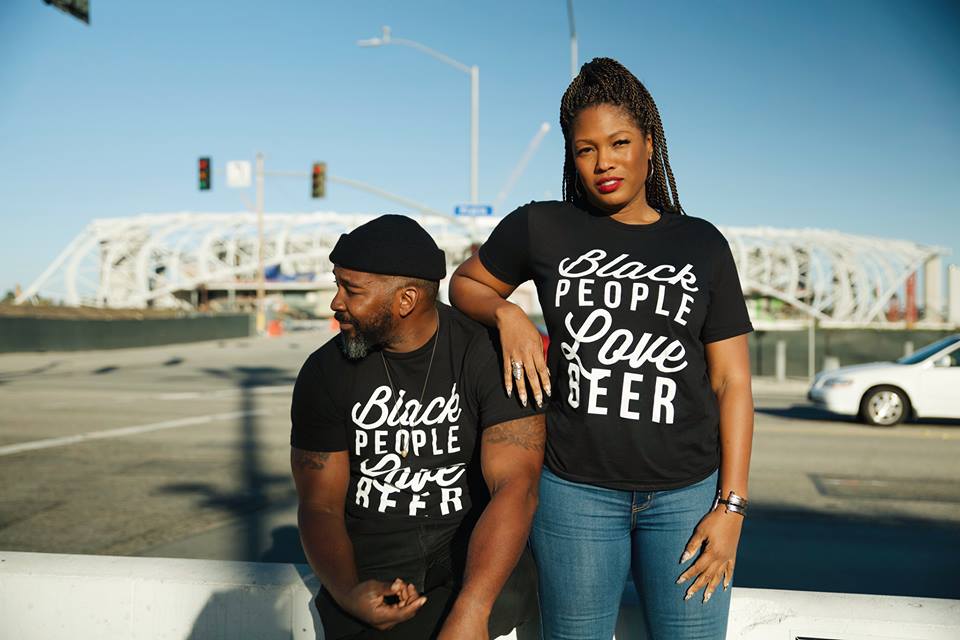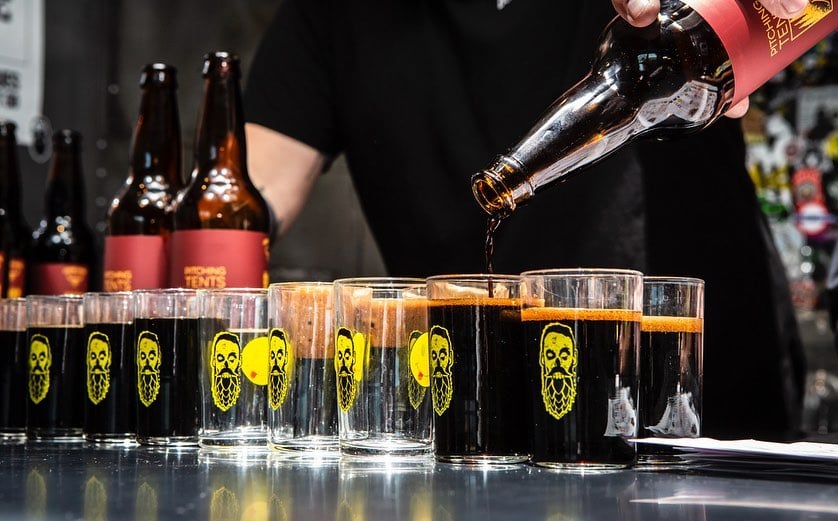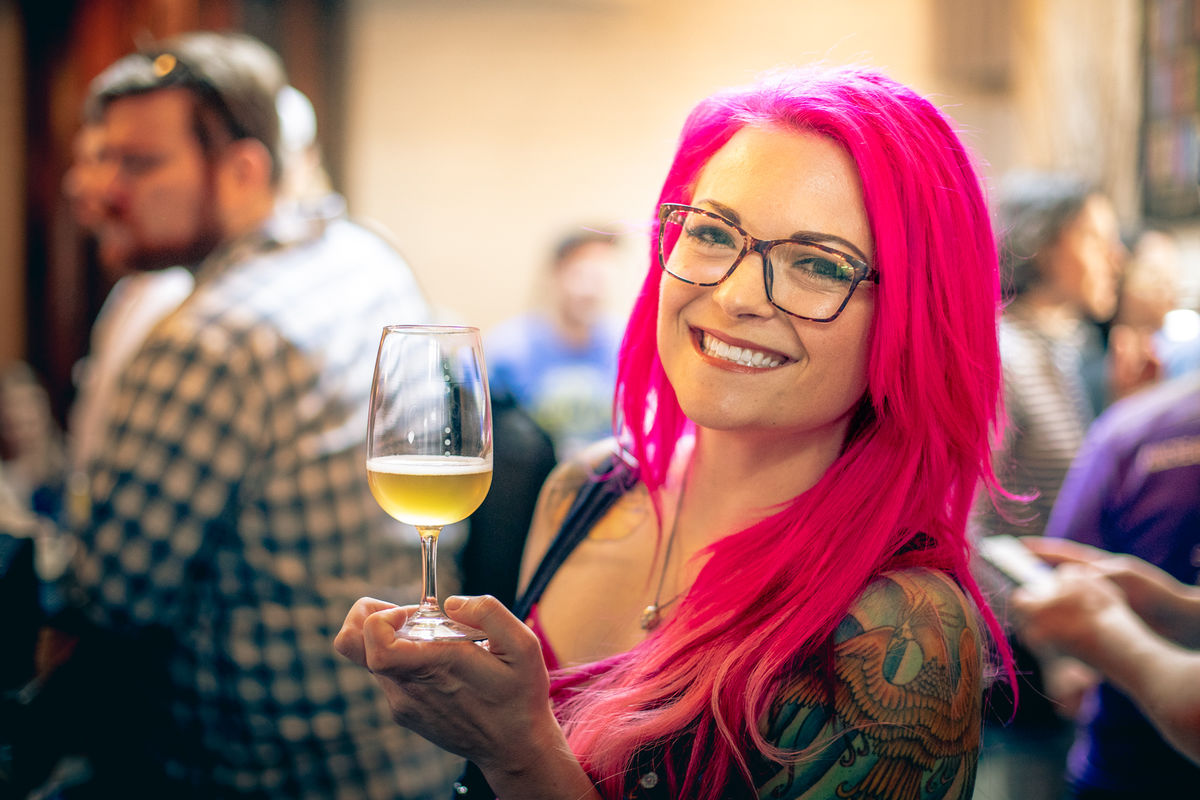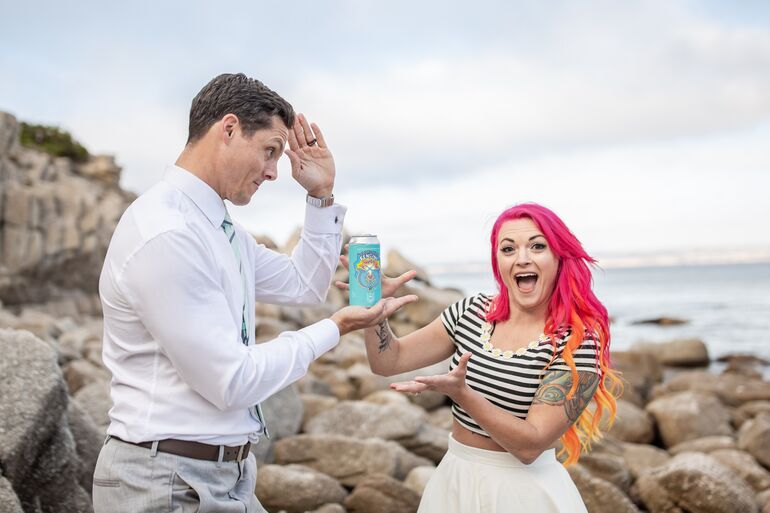Start 14-Day Trial Subscription
*No credit card required

Conversations with 3 Impactful Beer Social Media Influencers
Social media in craft beer is a big deal, and these impactful social media influencers know that better than anyone.
Without the accessibility the internet provides, the craft beer industry would likely not have experienced the same meteoric growth it has in recent years. By extension, social media has created ripples throughout the industry in which various influencers have found a niche.
The technology and consumer habitats shaped by it have been instrumental in the way beer lovers — and any consumers — discover new beer, share their habits and find out what to drink next. Countless numbers of social media “influencers” have popped up over the years in order to help cultivate the next hot trend, brewery or beer.
Here are a few influencers trying to take their followings to new levels, whether it’s starting a business or pushing for inclusivity or promoting a life well-lived, social media in the beer industry can be used to better the world – not just argue over the classification of the newest IPA trend.

Black People Love Beer
For Deny Ashburn and Teo Hunter, the team behind Crowns and Hops, it all started on Tinder. The two had just started dating - it’s now a platonic relationship - and were headed to a beer festival on the beach event, when Hunter texted Ashburn there “1,000 white people and I’m the only black person.”
What came next was the duo filming hours of video footage of Hunter interacting with people about the beer culture at the festival – all on social media.
“The footage was electric,” Ashburn said. “It was so welcoming, which was what we wanted and so we started an Instagram and created a shirt.”
The pair behind Crowns and Hops realized there wasn’t really a conversation around diversity and inclusion happening in the beer industry and felt it was something they could take on, as both have significant experience in marketing and advertising with high-end companies.
Hunter believes not everyone is built for the uncomfortable discussion around diversity and inclusion, and the discomfort is understandable. The lack of conversation also allowed for Ashburn and Hunter to gain traction in their movement and within a year, they felt they were onto something significant.
“We’ve been in certain areas where we were the only people of color, dealing with executives making decisions for consumers,” Hunter said. “There was a lot of discomfort in the conversation, but we realized since we were used to it, we were honored to have these conversations.”
Hunter said the pair really knew they had something special on their hands when they realized there was some pushback from breweries and bars, not acknowledging there was an unspoken issue. That led them to realize it was their business to take that responsibility on.
The shirt they created, “Black People Love Beer” turned into a badge of honor and allowed others to broach the subject of diversity in beer through social media posts.
The duo believed was they could develop a lifestyle brand, which is how Dope and Dank was born. Eventually, though, the realization further fostered the idea of the curation of a space where anyone could feel comfortable to talk about whatever they want – not just beer. Crown and Hops Brewing was born of that idea, and is slated to open in Inglewood, California in mid-2020.
“What’s really great is we’ve really created a nontraditional model using social media to create something we care about – a business that we hope leaves a legacy behind for our families,” Ashburn said. “Social media is such a great platform to create community and social equality and we’ve be able to do that in a way that hasn’t been done before.”
Ashburn and Hunter attracted the support of BrewDog and the two companies are now partners and the British brewery’s Columbus, Ohio operation is brewing Crown and Hops' two flagship brews Urban Anomaly, an American Stout, and an American IPA called Elevated Cypher, which were poured for the first time at Fresh Fest in Pittsburgh, Pennsylvania.
Crowns and Hops will be one of the first African American-owned breweries in California, and Hunter said it’s all about providing a blueprint for future generations, as there have been institutional roadblocks to minorities owning property all the way up to a decade ago.
“If you step into a paradigm and that’s the only model you know, how can you pick up these concepts?” Hunter said. “These things are changing, and we think breweries and brewpubs are staples of communities and we want to make sure that model is available as much to minorities as much as it’s been available to white people.”
Certainly, social media helps to connect people and bring up social issues that may have been swept aside in years past. Though it might be uncomfortable, social media can help lay bare social issues such as the lack of diversity in brewing – while also helping to plot a course for its solution in the future.

Pouring Beers
Chris Jacobs started intently building his @BeerZombies persona, ready to share his experiences with beer. Immediately he set out to post at least once a day while interacting with anyone and everyone who commented or messaged him. Furthermore, he didn’t want to produce any negativity.
“I only posted things I enjoy a lot,” he said. “There’s a lot of accounts that will post things and say, ‘This was awful,’ but I wanted to be more of a positive influence.”
Along with beers he drinks, Jacobs is an artist and has installed murals at a number of breweries.
It wasn’t long before Jacobs started making money on his work. Within the first couple of months, people asked for his art on a pint glass. He made a run of 24, figuring he’d end up holding onto them forever. They sold out in a few hours. Since then, he’s released 31 glassware designs.
It also wasn’t long before Jacobs began partnering with breweries on artwork. Since the first one with Kings Brewing in Rancho Cucamonga, California in 2015, he’s made 22 collaboration beers with breweries.
“I put in the work, I don’t just sit in my house posting,” he said. “I travel around, making these networks, and at the end of the day, the partnerships have to be a friendship first, it has to be genuine. I can’t just be sticking my name on something - I try to be as involved as possible.”
As he started planning his third Beer Zombies Festival in Las Vegas, Jacobs met with the owner of SkinnyFATs, and ultimately held the festival with him. Then, they decided to partner bigger: a Beer Zombies Bottle Shop, attached to one of the SkinnyFATs locations.
The shop opened in July 2019 and has been a rousing success according to Jacobs. He said there are plans for more in the near future.
Likewise, there’s plans to extend a tour of bottle shares he and several other influencers held across the country. Four were held this year, in Las Vegas, Dallas, New York City and in Maryland, where the four are all located. Next year, Jacobs said the plans are either to switch up the cities or just expand the schedule.
In the end, all Jacobs wanted to do was be part of the beer industry.
“The ultimate dream was to do something in the beer industry,” he said. “I got started in my own little way, and to see where it’s gone, I’m living my dream now.”

Be Yourself
Mikaelaa Crist has developed a following of more than 37,000 users on Instagram and it’s all through building an authentic relationship with her fans by being honest, upfront and genuine.
Like Jacobs, Crist made a conscious effort of interacting with every person who commented or messaged her @CraftyBeerMaven. That strategy can be a bit much now (with that many followers), but Crist said she still does her best to respond as much as she can.
The beer posting started following several years of posting about her cooking, health and fitness, but five years ago she broke her back and the ability to post workouts was taken away.
Once she started posting beer, her following exploded.
“The whole reason was to connect with fellow beer drinkers,” she said.
It built steadily. — and eventually her career military husband wanted to open a brewery — but last year, Crist burnt out. She was overthinking every picture and, suddenly, the constant interaction on social media wasn’t fun anymore, so she told herself she’d post what she wanted.
“People say I should focus sometimes, but why? It’s my life, I’ll post food, outdoor adventures, my dogs,” she said. “My life is centered around beer, but it’s not the only thing.”
She’s back to posting about healthy lifestyle and balancing beer with the rest of life. When it comes to the world of beer influencers, she’s of the mind of “don’t like, don’t follow.”
Her Instagram feed is full of photos of all sorts, just beer, workouts, food, photos of her on the beach — sometimes relatively risqué. She’s not worried about looking perfect, never editing out imperfections or wrinkles, since she’s simply posting her life.
“On Instagram, you can’t do right. It’s either too much or not enough,” she said. “It’s ‘why are you in a bikini at the beach?’, ‘why so many selfies?’, ‘I haven’t seen your face in a while, is everything OK?’”
“You’re damned if you do, damned if you don’t, so I just went back to my roots.”
While she works toward her dream to own a brewery, Crist sometimes thinks about doing something other than beer. If so, she fears she might lose her status within the beer community.
She also doesn’t want venture away from beer because what’s she’s doing now is a dream.
“I love what I do,” she said. “It’s really all about finding the balance.”
These profiles of major social media influencers paint varying portraits of how the omnipresence of the major social media channels have changed the fortunes of those featured within.
Social media is just as widespread as ever, with no end in sight for its importance to business around the world – including breweries.



